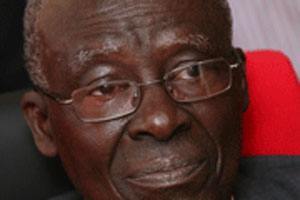
BULAWAYO — At least 48% of people living in rural areas in Zimbabwe defecate in the bush, exposing themselves to diarrhoeal diseases, a cabinet minister said last week.
Samuel Sipepa Nkomo, Minister of Water Resources Development and Management blamed the increasing outbreaks of water-borne diseases in rural areas to the use of the bush system by villagers.
“Ministers were laughing at me when I told them that our assessments show that 48% of Zimbabweans in rural areas use bush toilets,” said Sipepa-Nkomo. “They could not believe me. Our studies show that this is true. I told my colleagues in Cabinet that some of them could not fit into some of the toilets that villagers use.”
He added: “Most homes in the country especially in rural areas have no toilets. I was in Mtshabezi on Wednesday [last week] and nine out of 10 households there did not have toilets.”
Sipepa-Nkomo was speaking to journalists after touring Water, Sanitation and Hygiene (Wash) projects in Bulilima and Mangwe district in Plumtree last week.
The minister emphasised the need to educate villagers on the importance of having toilets, especially the older generations.
“I think first of all, most villagers do not appreciate the need to have and use toilets. Most of them grew up in an era where it was unthinkable to use toilets,” said Sipepa-Nkomo. “When I was growing up, there was nothing like that [toilets].”
The Wash project is managed by Unicef but funded by the United Kingdom’s Department for International and Development (DFID). Unicef Zimbabwe representative, Gianni Murzi also confirmed the statistics.
- Chamisa under fire over US$120K donation
- Mavhunga puts DeMbare into Chibuku quarterfinals
- Pension funds bet on Cabora Bassa oilfields
- Councils defy govt fire tender directive
Keep Reading
Murzi said 35% of rural households in the country did not have access to safe water.
“There is a further discrepancy in the provision of adequate sanitation as 69% of rural households do not have improved toilet facilities and of these households, 35% practice open defecation,” Murzi said in a speech read on his behalf by Unicef chief of Wash Section, Kikwe Sebunya. — By Nqobani Ndlovu










